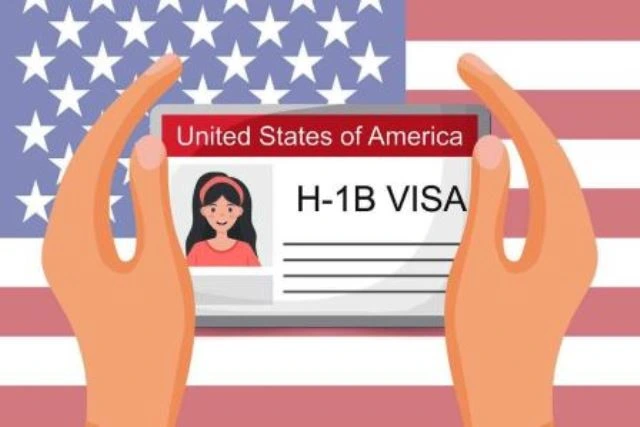Tata Consultancy Services (TCS), India’s largest IT services company, is taking steps to reduce dependence on US H-1B visas by expanding its global workforce strategy. In a recent interview, TCS’s Chief HR Officer, Milind Lakkad, revealed plans to hire 40,000 trainees in 2026, as part of its broader efforts to strengthen its local talent pool and reduce reliance on foreign work visas like the H-1B.
This strategic shift comes after TCS’s financial results for the October to December 2024 quarter, during which the company reported a reduction of 5,370 employees, marking the first decline in its workforce in the current financial year. Despite the dip, the company remains focused on its long-term hiring goals, especially in the U.S., where it aims for a more locally based workforce.
TCS Workforce Strategy and H-1B Visa Reductions
TCS has been gradually reducing its reliance on H-1B visas, which are used by U.S. companies to hire foreign workers for specialized roles. According to recent data, Indian-origin tech firms, including TCS, have been significant beneficiaries of the H-1B program. However, TCS has been shifting its focus toward hiring more local talent in the U.S. to ensure its workforce is more sustainable and less dependent on visa allocations.
Key Points of TCS’s New Workforce Model:
- 40,000 Trainees to Be Hired by 2026: TCS plans to onboard fresh graduates globally, with a major focus on local hiring in the U.S.
- Reduced H-1B Dependence: TCS aims to have more than 50% of its workforce in the U.S. sourced locally, reducing the need for H-1B visas.
- Decline in Employee Attrition: Despite a small rise in attrition rates, TCS expects a reduction in employee turnover in the coming quarters.
Global Workforce and the Shift to Local Hiring
TCS’s leadership has emphasized the shift towards a global workforce model that includes a substantial local presence in key markets like the U.S. K. Krithivasan, CEO of TCS, noted that the company now employs more than 50% of its U.S. workforce locally, minimizing the need for H-1B visa workers. This shift has been part of TCS’s broader strategy to build a more resilient, flexible workforce that is less reliant on immigration policies.
| Key Data on H-1B Visa Usage | TCS | Infosys | Cognizant | Amazon |
|---|---|---|---|---|
| H-1B Visa Allocations (2024) | 5,274 | 8,140 | 6,321 | 9,265 |
| Total H-1B Visas Issued (2024) | 130,000 | – | – | – |
As the U.S. visa policy evolves, TCS is adapting to ensure it can continue growing without being heavily impacted by changes to the H-1B visa process.
Impact of the US Visa Policy on Indian Tech Companies
Indian-origin tech companies, including TCS, Infosys, and Cognizant, have long been major recipients of H-1B visas. In fact, Indian tech firms account for nearly 20% of all H-1B visas issued each year. However, TCS’s efforts to hire more local talent signify a shift in this trend.
Visa Policy Uncertainty and Strategic Shift:
- H-1B Policy Changes: The future of U.S. visa programs, particularly under new leadership, could impact Indian tech companies.
- Growing Local Workforce: By hiring locally in the U.S., TCS is better positioned to manage potential changes in U.S. immigration laws and maintain operational flexibility.
What This Means for TCS and Its Employees
For TCS, the reduction in reliance on H-1B visas signals a more sustainable, forward-thinking workforce strategy. It also reflects the growing trend of companies in the tech sector becoming less dependent on foreign worker visas as they explore ways to tap into local talent pools.
- Job Creation: The hiring of 40,000 trainees is expected to provide numerous opportunities for fresh graduates, especially in emerging technologies.
- Employee Retention: TCS aims to reduce its attrition rate in the upcoming quarters, with the new hiring strategies playing a crucial role in employee satisfaction and retention.
TCS’s Future Without H-1B Dependency
TCS’s move to reduce its dependence on H-1B visas by hiring more local talent reflects a broader trend in the tech industry to adapt to shifting immigration policies. By focusing on local workforce growth and reducing its reliance on foreign workers, TCS aims to stay ahead of policy changes and build a more resilient global workforce. With plans to hire 40,000 trainees by 2026, TCS is positioning itself for long-term success in an increasingly dynamic and unpredictable business environment.



